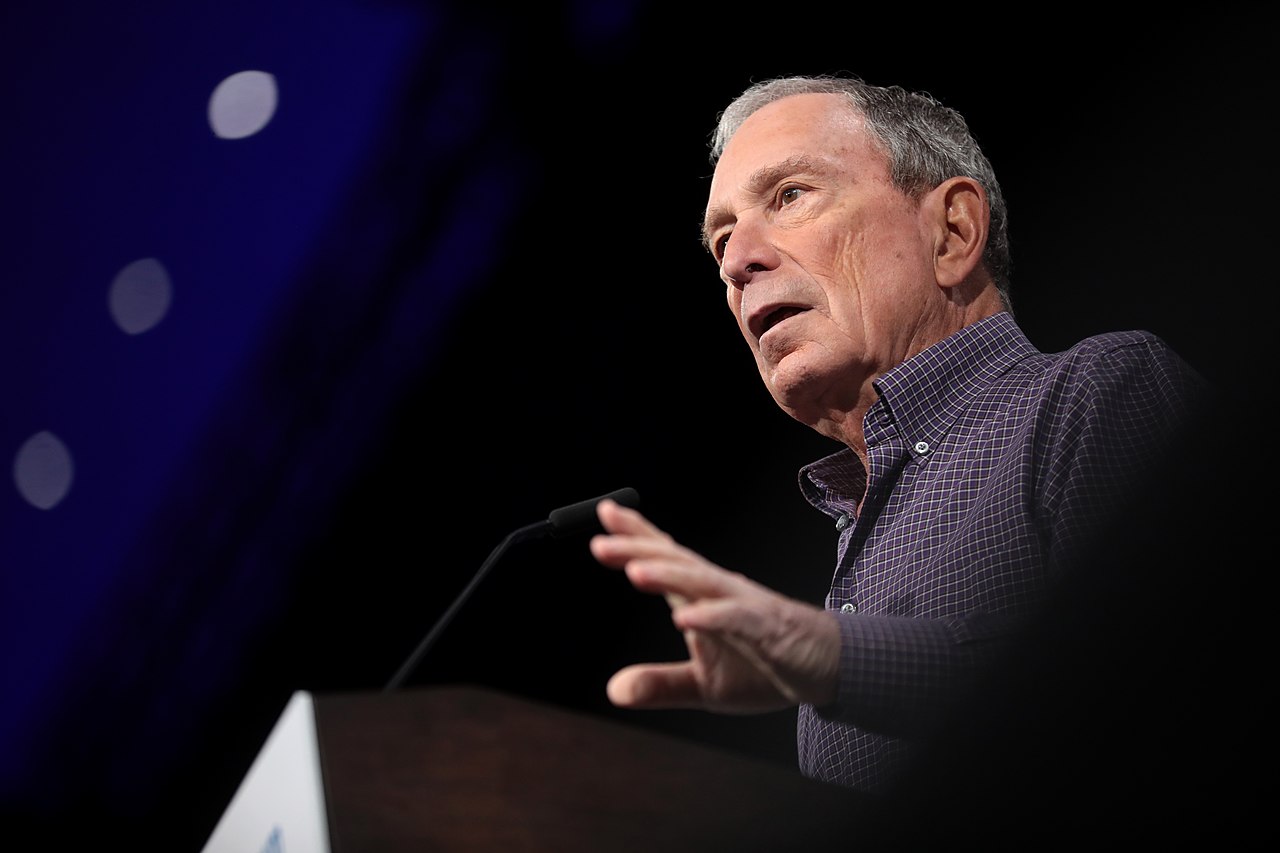Last night, Las Vegas hosted the fight of the century (and, no, I’m not talking about Wilder vs. Fury). If Sen. Amy Klobuchar (D-MN) referred to Congress as “the Arena,” then the debate stage was the Thunderdome. Except instead of only one fighter emerging in the end, only one fighter was clearly eliminated: former New York City Mayor Michael Bloomberg (D R I D).
Ordinarily, after enduring yet another political debate, I tell people they didn’t really miss anything. Not this time. Missing last night’s Democratic debate is like missing the Super Bowl (which this year also meant seeing a lot of Michael Bloomberg). You can watch the whole thing here. Pop some popcorn.
Now, I am well aware that this intro is one where I may end up eating my words. It may be that Bloomberg’s money is so plentiful and powerful that he’ll manage to buy the Democratic nomination even after his belly flop of a debate performance, but one thing is for sure: If he does, he’ll mark it down as another example of his big-hearted largess.
It is impossible even to set up this quote without wading into the deep mire of last night’s mudslinging. On the campaign trail last year, Sen. Bernie Sanders (I-VT) said that billionaires “should not exist.” This is actually a softening of Sanders’ 2016 position that repeatedly denounced not only billionaires but also millionaires. (Why he no longer denounces the latter is an unexplained mystery.) Chuck Todd, one of the debate’s moderators, did challenge Sanders on that statement, but then he turned to Bloomberg:
TODD: Mayor Bloomberg, should you exist?
BLOOMBERG: I can’t speak for all billionaires. All I know is I’ve been very lucky, made a lot of money, and I’m giving it all away to make this country better. And a good chunk of it goes to the Democratic Party, as well.
(APPLAUSE)
TODD: Is it too much? Have you earned too much — has it been an obscene amount of — should you have earned that much money?
BLOOMBERG: Yes. I worked very hard for it. And I’m giving it away.
Sounds nice. But if you’re wondering why no headlines today recount the heroic story of a now-homeless Michael Bloomberg, who gave all his money away “to make this country better,” it’s because his definition of giving isn’t the same as normal people’s. What he means by “giving” is “buying.”
How is it that he is “giving it away”? According to the New York Times,
Already, Mr. Bloomberg has spent more than $200 million on advertising, putting him on pace to spend by early March about the same as what President Barack Obama’s campaign spent on advertising over the course of the entire 2012 general election.
It should not need to be said, but apparently it does, that there is a difference between buying airtime for political ads and “giving.” Buying means that one person exchanges money for something else in return. Giving means that someone gives something to another with no expectation of return. It is the difference between what the economist Kenneth Boulding called “exchange systems,” like the market, and “integrative systems,” like the family. Apparently all relationships are exchange systems to Bloomberg.
This can be seen even with reference to the actual donations he referenced: his giving to the Democratic party. The DNC had previously set a threshold of 225,000 individual campaign donors for a candidate to qualify for its January 14 debate. But they eliminated the donor requirement before the Vegas debate.
Why? Here’s one popular theory: According to the New York Post,
The billionaire former New York City mayor wrote a fat $800,000 check to the Democratic Grassroots Victory Fund — a joint fundraising committee for the DNC, the state political parties and the D.C. Democratic Party – on Nov. 19.
Bloomberg officially announced his campaign for president on November 24.
The $800,000 was then redistributed to the DNC and 44 states between Nov. 19 and Nov. 27, campaign records show.
The portion distributed to the DNC was $319,5000, according to records filed with the Federal Elections Commission.
Many have alleged that the correlation between Bloomberg’s donations, his campaign launch, his rise in the polls, and the DNC’s removal of the donor threshold for debates are no coincidence.
At the debate, Bloomberg even boasted about how “I only entered into this race 10 weeks ago. All of my associates here have been at this for a couple of years.” He may have had a few zingers, but his lack of preparation overall was astounding. The other candidates each took turns (some of them several) tearing him down in ways that he should have seen coming: for his questionable treatment of women, his massive wealth, his switching parties, his “stop and frisk” racial profiling in NYC, and of course — as they, and perhaps even he, see it — his buying his way onto the debate stage.
After last night’s debate, however, I suspect Bloomberg is feeling a bit of buyer’s remorse. Perhaps, after that, it will now be clear to him that giving means you aren’t guaranteed anything in return.
Featured image: Gage Skidmore from Peoria, AZ, United States of America / CC BY-SA)

